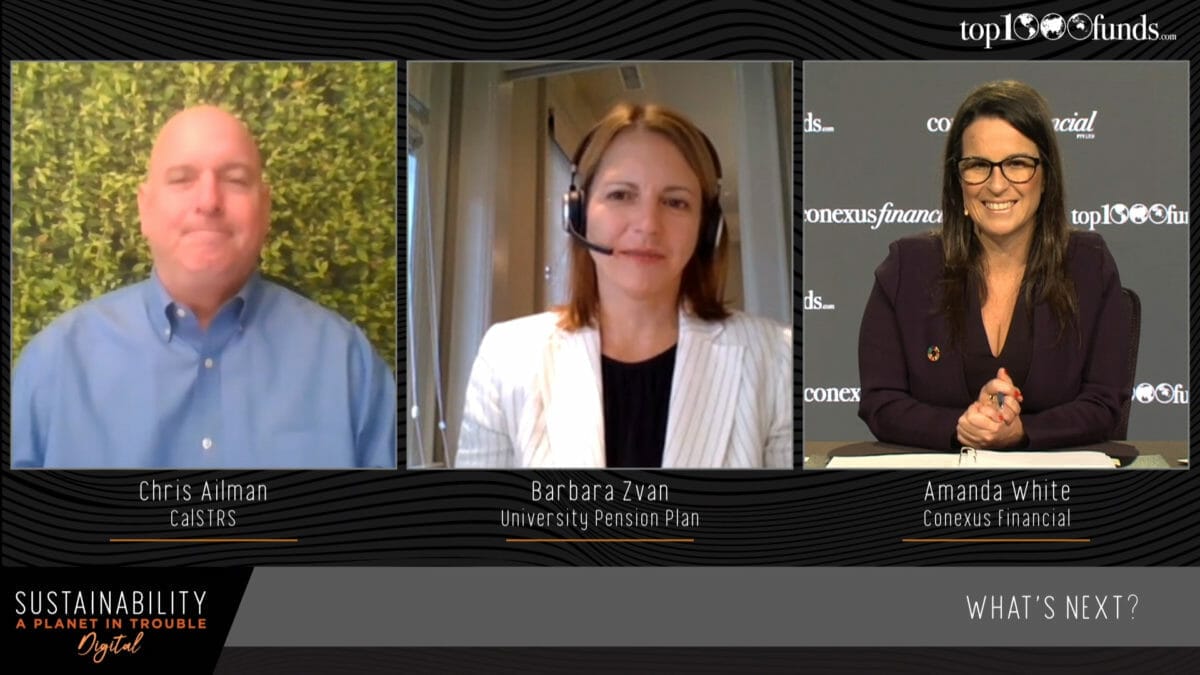The UK’s £30 billion Brunel Pension Partnership is taking investing in a carbon zero future to a whole new level. The asset manager for 10 local authority schemes, already well-known for its investment track record and expertise in this area, has just published a far-reaching Climate Change Policy filled with actions and deadlines linked to the goals of the Paris Agreement.
The initiative goes beyond Brunel just readying itself for the future. At its heart lies a bold ambition to shape and push the whole investment industry to prepare for a carbon zero future.
“Our central thesis is to systematically change the financial system. This is the bit that is thwarting and aggravating the achievement of our aspirations,” says Faith Ward, chief responsible investment officer at Brunel.
Policy
First up is a commitment to work with policy makers, helping shape regulation like carbon pricing, the removal of fossil fuel subsidies or new frameworks to measure progress. Brunel already lends its resources and expertise to a long list of regulatory advisory groups (the Environment Agency Pension Fund, one of its client funds, helped set up the Transition Pathway Initiative) but has promised to put more resources and expertise to behind-the-scenes work that will change the economics of a particular investment, or make climate risk more explicit. It is the only way to force investment to “shift at scale” and give policy makers “the confidence to be truly bold,” says Ward.
“It’s not just a case of moaning about policy makers but lending our time and energy to supporting those regulators. People often criticise policy makers but when policy makers reach out and say can you be part of this working group, or can you help us, there are not always as many volunteers as needed.”
Product governance
Next Brunel promises to encourage and stimulate the roll-out of more investable, climate-orientated products. “The products don’t always exist for investors wanting to invest in a below 2-degree portfolio across all asset classes,” she says arguing that managers need to see more demand and encouragement from asset owners to develop more innovative, climate-related products. New benchmarks are a prime example. “We currently measure success relative to underperforming or outperforming a market cap weighted benchmark, but that isn’t the right framing if that benchmark is going to take you to four degrees.” New benchmarks need developing to incorporate traditional risks in parallel with climate risk and place climate in the broader risk framework, she says.
Brunel will be increasingly “mindful” of climate change in its own product offering to its client funds, avoiding strategies that are inherently carbon intensive. For example, she plans to explore “smart” ways to navigate the UK-listed equities space given the FTSE hosts companies inherently more carbon intensive than other indices. “The carbon footprint of UK equities is higher than the MSCI ACWI.”
Elsewhere, value factors in smart beta allocations also tend to have a higher carbon exposure. “We are seeing solutions emerge around being carbon smart; it’s about innovating and working with the market to fill some of the gaps particularly in fixed income and alternative liquid assets.” One of the biggest challenges is actually knowing what a 2 degree portfolio looks like so that Brunel’s client funds can see how far away they are from their objectives. Here Brunel is working with the Institutional Investors Group on Climate Change (IIGCC) on a project to examine what a Paris-aligned pension fund looks like.
Manager relationships
Portfolio management comes next, with Brunel promising to ensure its 23 external managers (a number that will grow under the pooling process and ensuing re-tending of portfolios) integrate climate change and alter the way they work. Rather than a surprise, for long-standing managers this amounts to an articulation of a priority they alrady know well given Brunel’s rigorous due-diligence process. Ward has just carbon footprinted all 20 managers shortlisted in its global high alpha mandate, from which five won mandates.
That is not to say it won’t be challenging. None more so than for the new cohort of four US and five North American managers, recently awarded mandates. It is a rigour and oversight she believes these managers will welcome as they seek to gain a foothold in the European market. “They can see that their historical approach has been a barrier to getting new business,” she says. Their biggest challenge will be grasping the detail of what is being asked of them and keeping abreast of the conversations that are happing in the European market: US investors don’t necessarily demand the same level of transparency and reporting, she says. “We wouldn’t have appointed them if we didn’t feel that they were able to do it. They want to do it. It’s just nobody ever asked them before.”
She also believes that Brunel’s systematic approach is important for managers. “We are looking at the system rather than just challenging our managers. It is about recognising that asset managers are responding to the framework they have and that this is about working with them to change that framework.” That said, she is resolute that if managers don’t pull their weight, they will be dropped. “We are very unambiguous in our expectations – we are serious: if managers do fall short it will jeopardise their long-term contractual relationship with us.”
In another gauntlet to managers, the policy won’t extend to rules on divestment. It’s too simple to just give managers a list of what they can’t invest in because they won’t be compelled to develop capacity or drive changes in corporate behaviour, she explains. “We want managers to see our policy and for them to then show us their data and analysis, and how they thought it through.”
Progress will be marked in a Q3 2022 stock take, coming down on manager and corporate behaviour particularly. However it will also amount to a review of the whole Policy and take place in collaboration with client funds in a process, she says, reflective of Brunel’s member funds commitment and ownership of the Policy that extended to them wording much of the detail.
Positive impact
The fourth P is Positive Impact, whereby Brunel will endeavour to invest in assets like public transport and energy grids. This policy is also engrained at Brunel’s own behaviour. “We are also looking at our behaviour too,” she says. “We are on a renewable tariff and use glass bottles for our office milk. These are only tiny things, but it is about genuinely aligning the whole organization.”
Of course Brunel won’t change the financial system alone. The final P is Persuasion, and a promise to engage and cajole not only investee companies but all seams of the financial industry spanning other asset owners, managers, auditors and regulatory organisations to plan for the transition. “It is about bringing the whole thing together,” she concludes.




